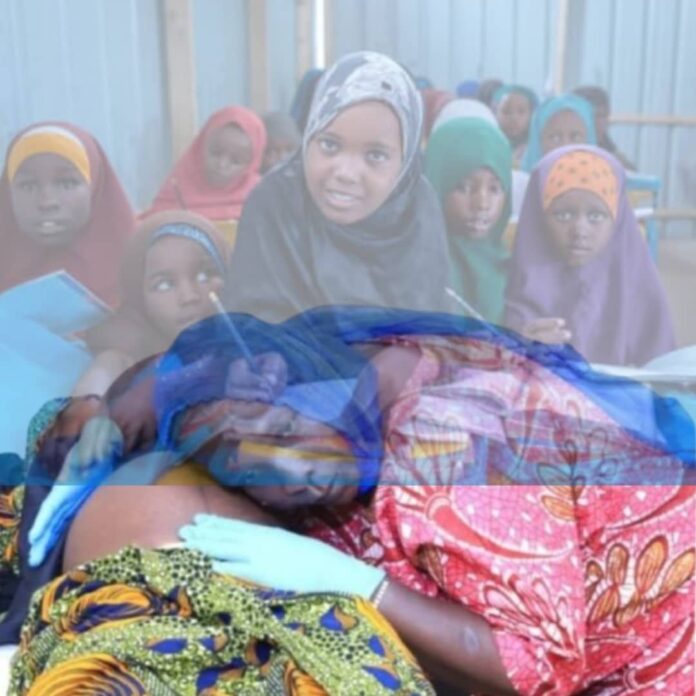By Fauziyya Lawal, Katsina
In Katsina State, the plight of internally displaced persons (IDPs) remains a significant concern, particularly in the areas of education and healthcare.
His Excellency, Malam Dikko Umaru Radda, has shown unwavering commitment to improving the living conditions of IDPs, demonstrating a compassionate approach through comprehensive initiatives aimed at restoring balance in their lives.
Malam Radda’s administration has prioritized the return of displaced children to school without hindrance, recognizing that education is crucial for their development. “Education cannot be left to chance,” he noted, underscoring that displacement should not equate to the loss of opportunities for learning. Currently, more than 30,000 children in Katsina State are out of school, their education disrupted by conflict and banditry. Addressing this, the Office of the Senior Special Assistant on Victims of Banditry and IDPs, led by Alhaji Saidu Ibrahim Danja (Koguna Jibia), works diligently under the governor’s direction to ensure the re-enrollment of these children.
Collaborating with the State Ministry of Education, the Girl Child Education Department, and the State Universal Basic Education Board (SUBEB), Alhaji Danja’s office has introduced initiatives to facilitate the smooth return of children to school. These measures include makeshift classrooms, the provision of learning materials, and the distribution of essentials such as uniforms, school bags, and shoes. The Katsina State Social Investment Programme has also been integrated into these efforts, ensuring that displaced children benefit from school feeding programs to improve their overall well-being and educational experiences.
Teacher training is another key focus, equipping educators with the skills needed to support the unique challenges that displaced students face. This approach aims to restore a sense of normalcy and stability in the lives of children who have experienced trauma, fostering resilience and a brighter outlook for their future.
Healthcare, another critical pillar of support, has not been overlooked. Displacement often leads to limited access to medical facilities and essential services. IDPs in Katsina State face disruptions in healthcare, including the loss of routine prenatal and postnatal care for women. To bridge these gaps, the Office of the SSA on victims of banditry and IDPs works closely with the State Ministry of Health to provide vital health services. Displaced women are encouraged to continue their medical check-ups at nearby health centers, ensuring seamless access to maternal and child healthcare. Additionally, health education campaigns and the provision of essential medications are being implemented to improve the overall health conditions of IDPs.
The innovative “Neighbourhood and Host Communities” initiative has further supported the integration of IDPs. By relocating displaced individuals to stay with extended family members in host communities such as Jibia, Batsari, Batagarawa, and Faskari Local Government Areas, the program leverages existing social networks to offer mental and emotional support. This approach helps maintain family structures and promotes social cohesion, vital for the well-being of displaced persons.
While the state government, under Malam Radda’s leadership, has made notable strides in addressing the disruption caused by displacement, significant challenges remain. His Excellency is determined to sustain these efforts, ensuring that the education and health needs of IDPs are adequately met and their lives gradually restored to balance.
In conclusion, tackling the multifaceted issue of displacement in Katsina State requires a collective and dedicated response. The efforts led by Alhaji Saidu Ibrahim Danja and supported by various state ministries represent a meaningful step towards restoring hope. Yet, the path ahead is long, calling for the continued commitment of all stakeholders to ensure that the fundamental rights of education and health for IDPs are upheld and transformed from aspirations into tangible realities.




